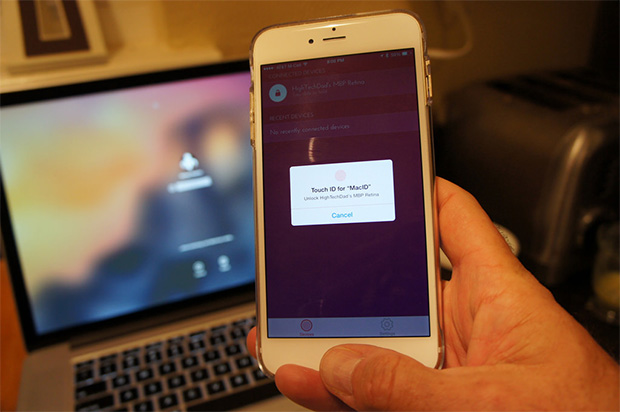Apple Patent Reveals Future iPhones Could Nab Fingerprints And Photos Of Suspected Thieves

Apple has filed a patent application with the United States Patent & Trademark Office (USPTO) that could flip the script on iPhone and iPad thieves looking for a fast payday. What they'll get instead is a visit from local law enforcement—the patent involves taking a snapshot and capturing the fingerprint of the thief without the sticky fingered culprit knowing.
This is really a means of taking biometric security to the next level. Traditionally biometric security measures have been used to help verify a person's identity in place of (or in addition to) inputting a user password. But in this case, biometric technologies built into Apple's mobile devices would be used to collect identifying information about the person in possession of a stolen gadget.
As Apple describes the functionality in its patent application, there would be several trigger conditions that could prompt a stolen iPhone to capture fingerprint data and take a snapshot on the sly.

"The trigger condition may be receipt of one or more instructions from one or more other computing devices, detection of potential unauthorized use by the computing device, normal operation of the computing device, and so on," Apple explains in its patent application. "The computing device may obtain biometric information and may store such biometric information. Such biometric information may be one or more fingerprints, one or more images of a current user of the computing device, video of the current user, audio of the environment of the computing device, forensic interface use information, and so on."
Whatever biometric data the stolen device captures would be stored and transmitted to the phone's rightful owner or authorities. It's easy to envision how this could be an effective means gathering information about a thief, though the fingerprint recording might be a bit ambitious at this stage. As it stands, setting up Apple's Touch ID requires several taps of a user's finger and at different angles.
There's also the question of privacy. Not many people are likely to take issue with capturing data from a thief, but giving the iPhone and iPad the ability to secretly record and transmit idenitying details is sure to make privacy advocates uneasy.

